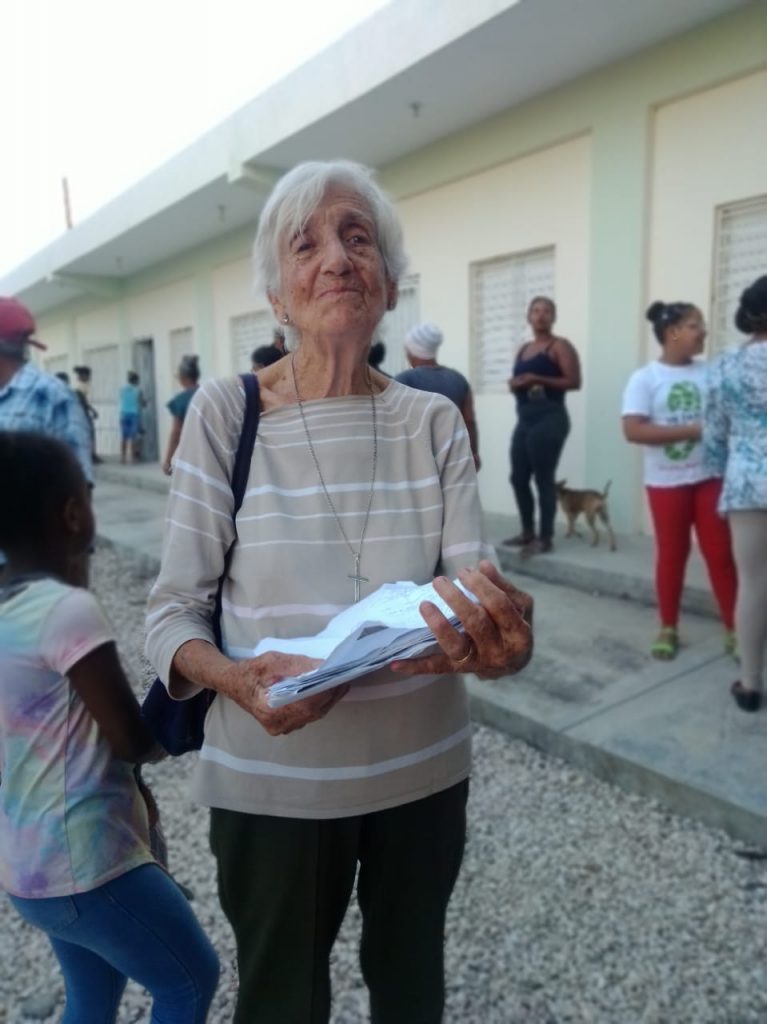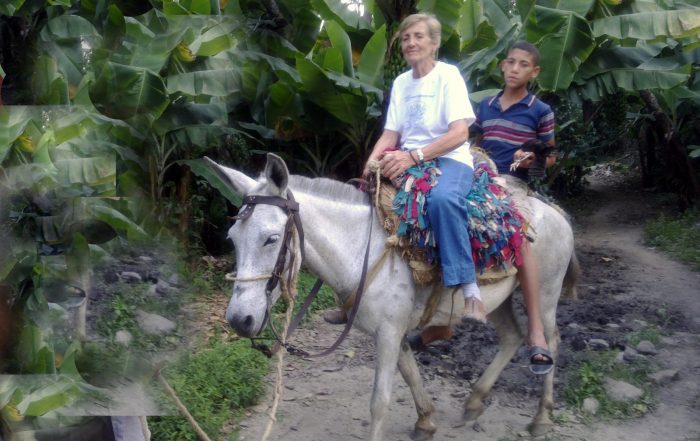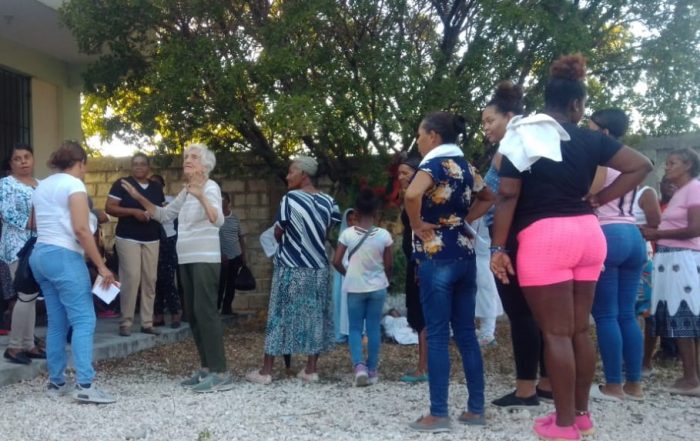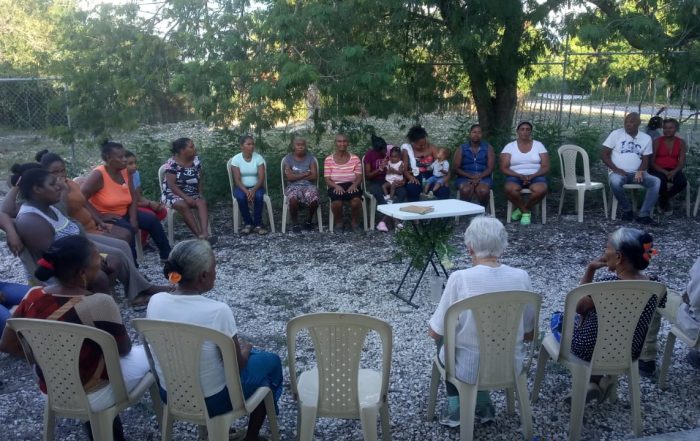THE WOMEN OF THE SOUTHERN REGION
- Hnasmdro
- marzo 28, 2023
- MDR Experiences
- 0
- 350
“Blessed women who in their daily walk make history a cry of freedom, of love and hope, of love and hope.”
In the south of the country, there was a team that accompanied the peasants of the region in the knowledge and demand of their rights. They were pleased to see that women, and also religious women, felt this call to accompany the doubly exploited peasant women, as Bishop Zubieta spoke to the nuns of Huesca: “… he spoke to them… and of the role in which religious women can play in the education of girls and women who will later be the basis for the creation of Christian families in their tribes” (Bishop Zubieta and Les, p. 224).
In Cabral, the Fathers of the Immaculate Heart of Jesus and Mary ran the Center (which had previously been a Catholic School) for the formation of the peasants with workshops, courses and others. Here, the first steps of the sisters in the formation of groups of peasant women also began.
The contact with the women was more complex, it was necessary to visit them at their work, home, farm, etc., the best way was to work with them to understand their problems. Most of the women worked harvesting tomatoes for a company, enduring sun and heat, but they felt that the effort was worth it. We visited several villages in the Cuenca area. In Cabral and Polo, the work with women was more from an ecclesiastical point of view, as a way of integrating them into the base communities, although women’s associations were also formed from there.
Little by little, one could perceive the response they were giving to life. They were encouraged by the desire to improve their situation and that of their homes. We cannot leave aside the work that was done among men and women to banish machismo and submission without criteria.
The work with women was initiated by other sisters who had worked before me in this community of Cabral, we can mention: Tony, Rosadina, Conchita. I joined in 1987. After Sister Conchita Valbuena’s illness and having previously asked to work with women in the south, I left the Juan Pablo Pina Hospital in San Cristobal to join the Cabral community.

The beginnings were difficult, I was used to fixed work schedules, and I had no experience with organizations. One way to introduce me to the work was to visit and get to know the communities and their reality. The poverty of its inhabitants, both material and spiritual, led me to think more than once, to return to my hospital in San Cristóbal, as B. Ascensión writes to Dr. Belisal. Ascension writes to Dr. Belisario: “…and this makes me hope that the Lord will bless the work, in spite of the difficulties that may arise at the beginning, for which I hope that your prayers will not fail us”. Little by little I came to know, to share, to really feel that the work was worthwhile, that the Lord was calling me to carry out this new mission. It was hard for me, but it was harder for those women who many days had nothing to light the stove with.
The Lamba Team, a Catholic institution that worked in the diocese with the peasants, is being restructured, giving more emphasis to the work with women from a gender perspective. The Christian communities (after the new impulse given to what would be called CEBS (Basic Ecclesial Communities) reinforced the Christian commitment of men and women within society, where I also became involved in the formation of small groups with this liberating line.
In Polo we worked with women, forming Christian communities, raising awareness and community organization, based on the experience and leadership of other women’s groups that existed in the country. While working with the communities, we felt the need to look for alternatives to the poverty experienced by most of the families, one of the most relevant aspects was the malnutrition of children from four years of age and older. It is from this perspective that the training in family gardens began with great effort, which were worked by women, whose criterion was to form gardens for home food and the sale of products. This activity lasted several years, because it was not easy to convince the positive health benefits of this type of food.
The attitude of the women in the face of the disenchantment that arises from the arrival of Cyclone Georges, which destroys all the work done over the years, makes more than one woman say: “go away, because this is over”. However, the project does not come to an end, as other groups emerge motivated to continue working in the organization. Little by little the work is consolidated and the group that remains, together with the men who support the project, is consolidating until the Association of Organic Producers is formed with weekly product sales and processing of their products (wine, candy, sauces, among others). For this purpose, they have a truck. A meeting center, as well as a pharmacy where medicine is sold at low price.
Currently, I continue to accompany, in another way, the women in the Christian communities, through formation and animation so that they may always be the protagonists of their development. I thank God for having allowed me to live this beautiful experience in this southern region, so marginalized and forgotten by the governments and the church itself.
Maria Carmen Laguardia
Community of Cabral, Dominican Republic.



